Hydraulic Drivetrain
Hydraulic Drivetrain
At the core of the DOT hydraulic drive train is a sea water pump directly driven by the turbine rotor. The pump is part of a system that uses pressurized seawater as it’s means of storing and transporting energy potential. By replacing the generator, the nacelle weight is reduced to up to 50% which means that the support structure weight can also be reduced by 30%. This allows for larger and more cost-effective turbine design.
Hydraulic pump
The conventional turbine generator is replaced by a hydraulic pump that is able to pressurize seawater taken directly from the sea surrounding the turbine. It is capable of slow rotation speed, high pressure and high-power output. The resulting pressurized seawater can be used to generate electricity, fresh water and/or hydrogen.

Process Timeline
-
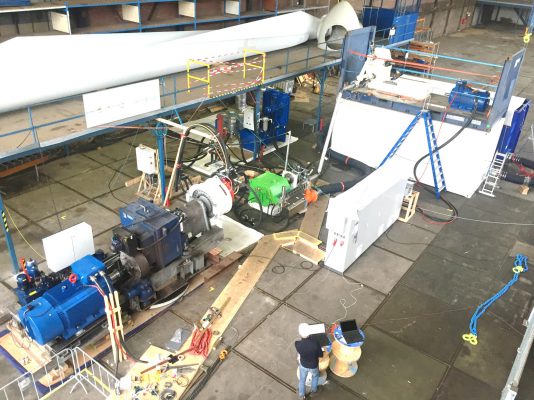
Hydraulic drive train test set-up
In our workshop in Delft a fully functional 500kW hydraulic drive train that includes a high pressure water pump (KAMAT) and a Pelton Turbine was developed and tested.
-
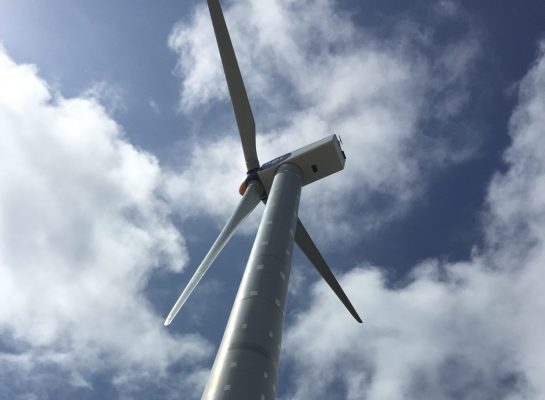
Onshore full scale testing
A fully operational 500kW hydraulic wind turbine including wind turbine control via spear valve and a slip joint was tested onshore at the Maasvlakte in the Port of Rotterdam.
-

Medium scale seawater pump development
Design, construction and testing of a medium scale high pressure seawater pump which can operate at slow rotation speeds.
- Proof of radial piston pump concept
- Camring
- Side force mitigation
- Spring loaded
- Proof of high mechanical efficiency
- Proof of radial piston pump concept
Other innovations
All our innovations are supported by an extensive track record of studies, prototypes and offshore testing. Our approach is to “put steel in the water”: relentlessly testing the concepts in its designated environment of operation.

Hydraulic Drivetrain
The core of the DOT concept is a sea water pump directly driven by the turbine rotor. It is capable of slow rotation speed, high pressure and high-power output.
Read more >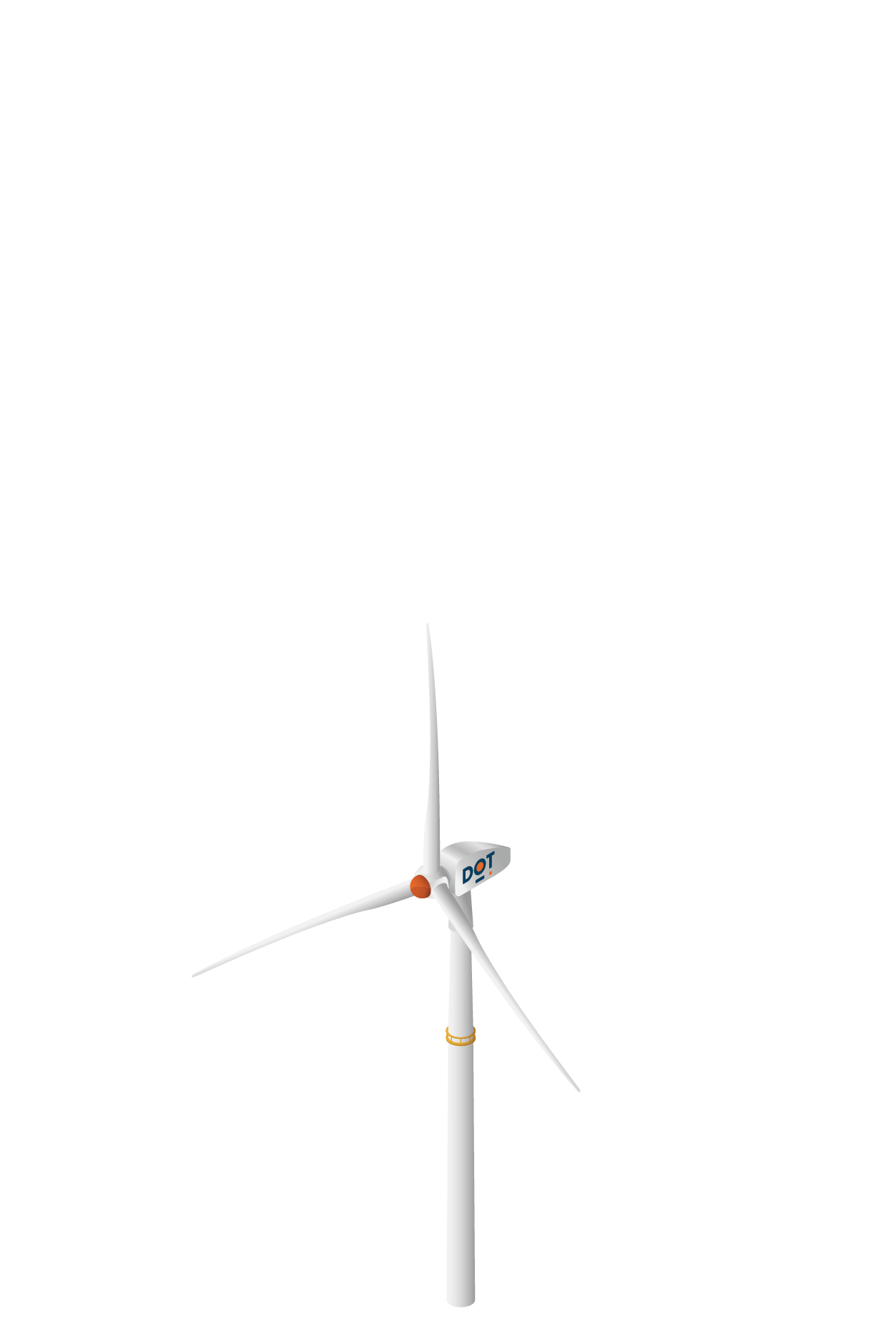
Wind Turbine
Operating a water-pumping wind turbine allows for different control strategies. DOT develops these during the integration of the pump in different turbine platforms.
Read more >
Pelton Turbine
Power conversion from high-pressure seawater is done using hydropower technology a pelton wheel driving a generator. DOT creates an unprecedented 4km hydraulic head.
Read more >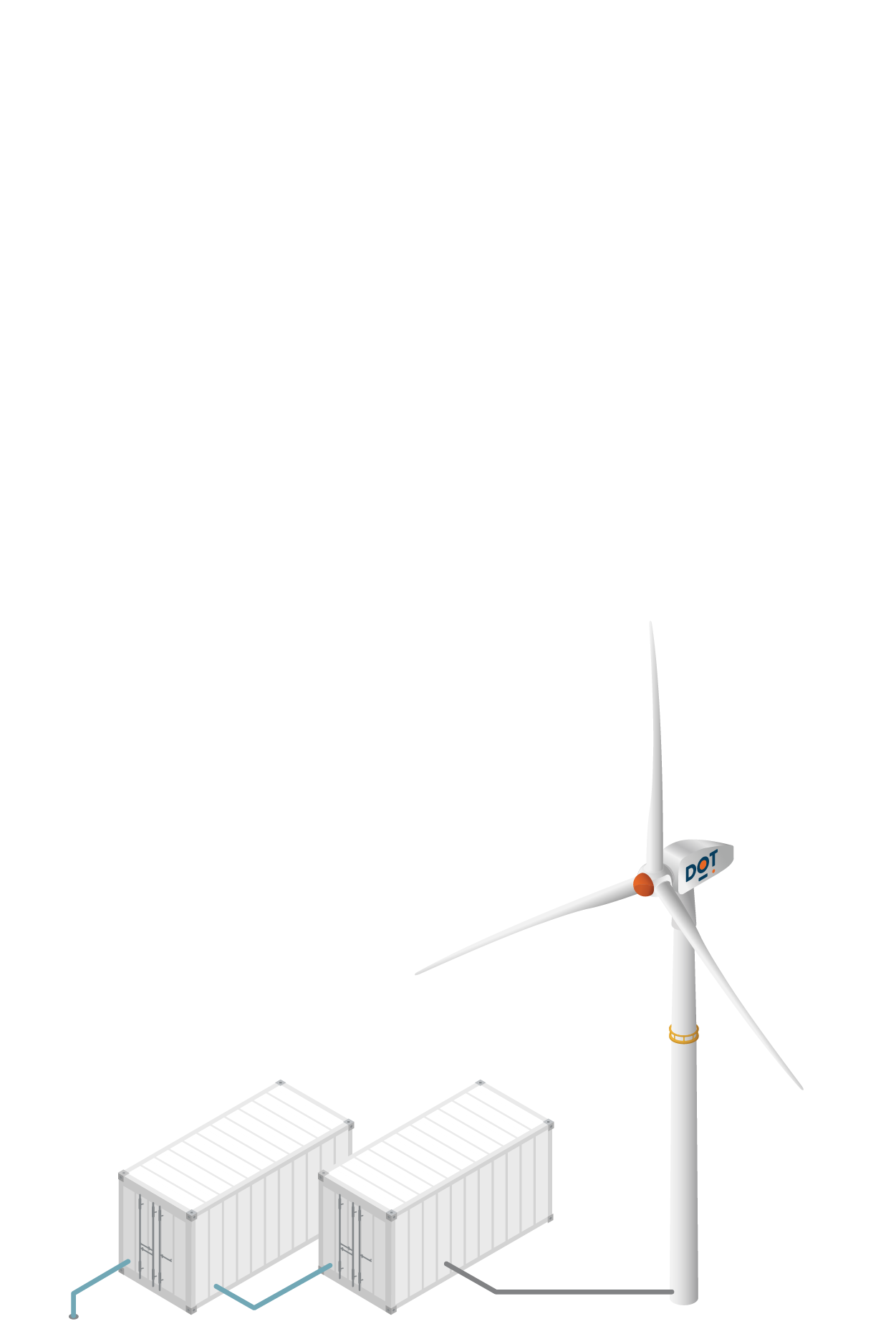
Reverse Osmosis
High pressure seawater can also be used through a reverse osmosis system. The DOT turbine takes out several energy conversion steps to arrive at renewably cleaned water for drinking, irrigation or H2 production.
Read more >
Slip Joint
Speedy installation of the thousands of megawatts offshore wind is crucial to meet the Paris goals. The slip joint removes many cumbersome offshore handling operations, allowing single lift turbine installation.
Read more >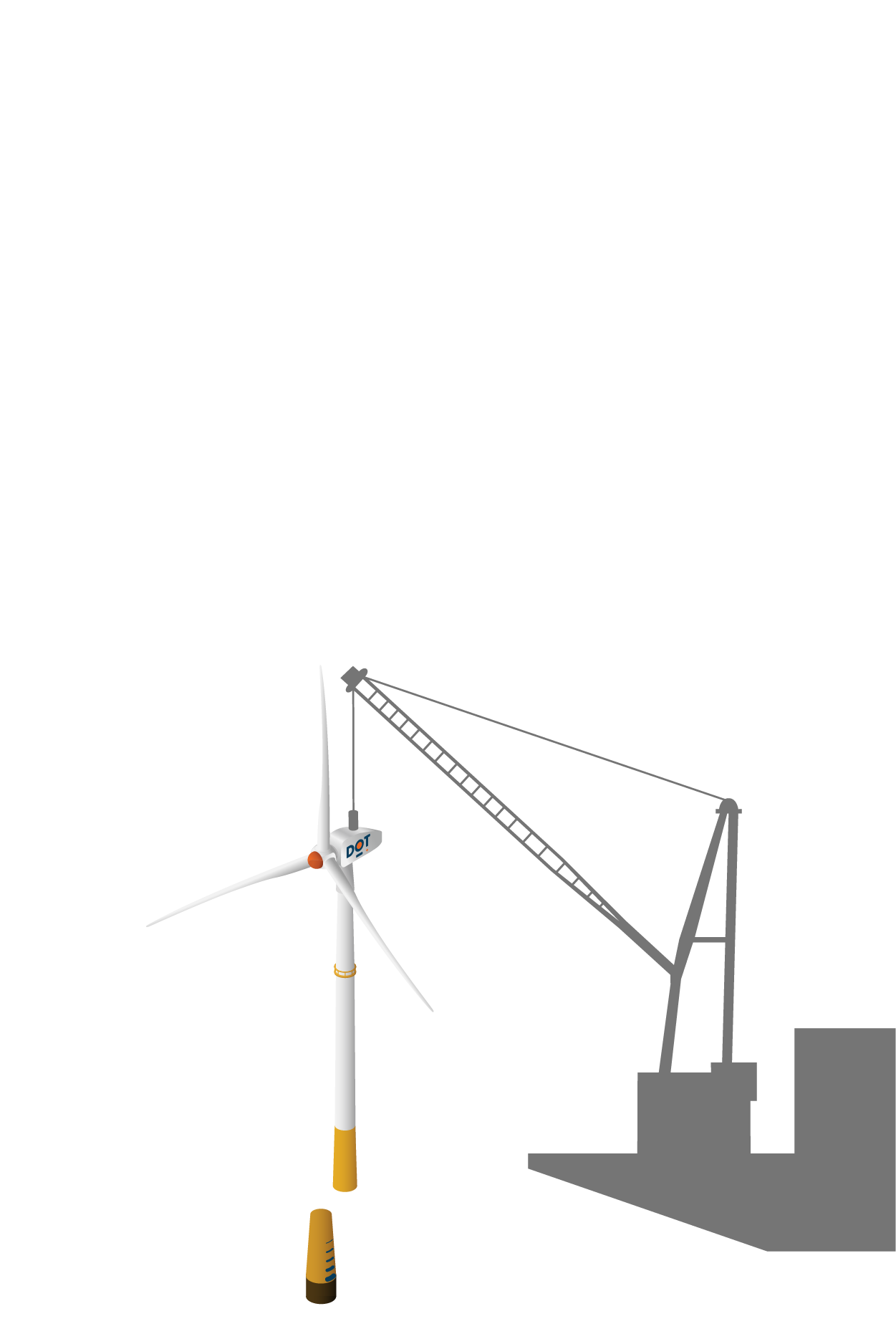
Installation
Beyond the slip joint, DOT supports innovations on pile driving technology, monopile design and cable and pipeline installation. The “steel in the water” drive makes DOT a valuable partner in Joint Industry Projects.
Read more >